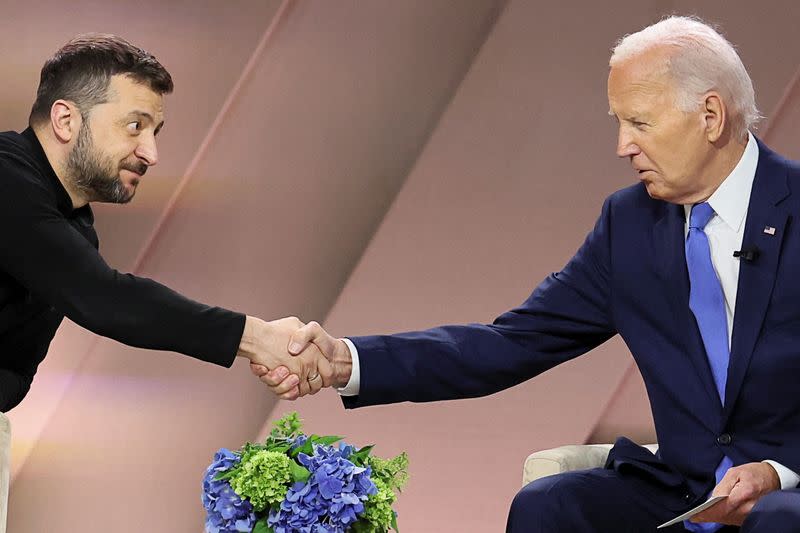Ukraine gets new $225 million US military aid after Biden meets Zelenskiy

By Jeff Mason and Kanishka Singh
WASHINGTON (Reuters) -The United States on Thursday announced a new security package for Ukraine worth $225 million, which includes a Patriot missile battery, additional ammunition for high-mobility artillery rocket systems and missiles, among other items.
WHY IT'S IMPORTANT
Washington, Ukraine's biggest supporter, has provided more than $50 billion in military aid since 2022 when the Russian invasion began. But U.S. military aid was delayed in Congress for months over the winter, and Ukrainian President Volodymyr Zelenskiy said a shortage of weapons was giving Russia the upper hand.
After battle lines remained largely frozen since early in the conflict, Moscow made some advances in eastern Ukraine in recent months. Zelenskiy has urged Western governments to increase and speed up military aid to Kyiv's forces. U.S. legislation was approved in April that provided $61 billion in funding to Ukraine.
KEY QUOTES
"We will stay with you, period," U.S. President Joe Biden told Zelenskiy ahead of a bilateral meeting at the NATO summit in Washington.
Zelenskiy said the two men would discuss how to achieve a just end to the war with Russia, and called for a second peace summit this year. An initial summit, which Russia was not invited to, was held in Switzerland last month.
"As President Biden has made clear, the United States and the international coalition we have assembled will continue to stand with Ukraine," U.S. Secretary of State Antony Blinken said in a statement announcing the package after Biden's remarks to the Ukrainian leader.
CONTEXT
Ukraine has repeatedly called on partners to provide more help with air defense as it faces attacks from Russia on cities and energy infrastructure.
Zelenskiy said last week he wanted to double Ukraine's air defense capacity over the summer.
(Reporting by Jeff Mason and Kanishka Singh; writing by Rami Ayyub and Kanishka Singh; editing by Susan Heavey and Alistair Bell)


